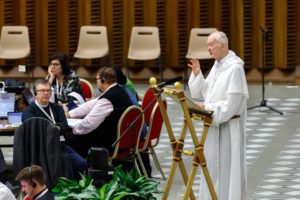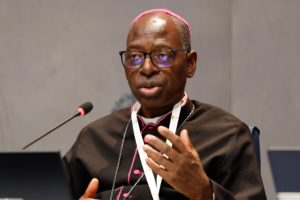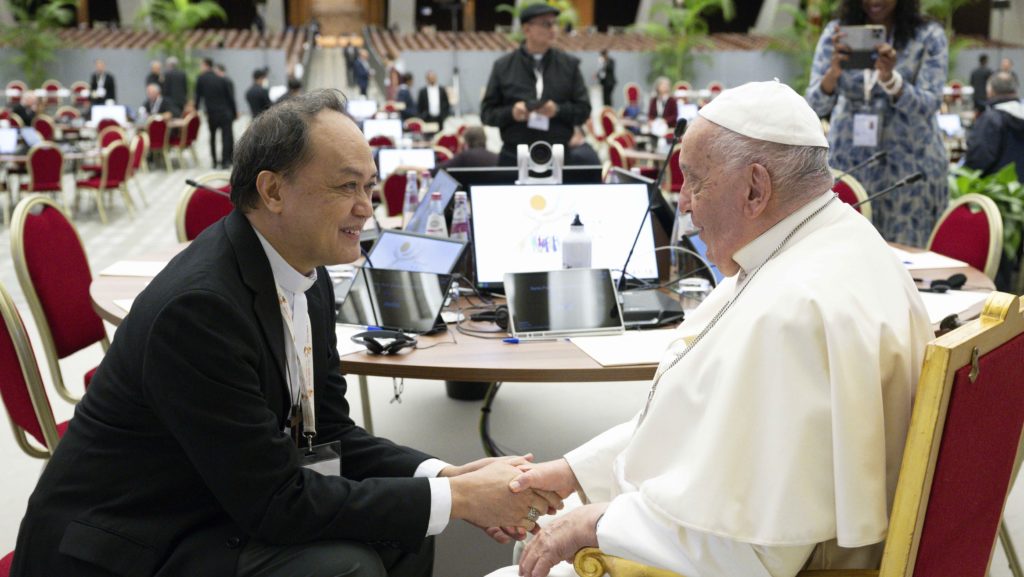ROME – One might call the ceremony Pope Francis will stage in Rome Dec. 8 for the creation of new cardinals, the tenth of his papacy, his “casino” consistory. One of the most popular games at any casino, after all, is blackjack, the object of which is to hit 21 – which is what Francis did Oct. 6, by naming exactly 21 new members to the church’s most exclusive club.
The term “casino consistory” is apt at a deeper level too, because these selections, like so many of Francis’s cardinal choices over the years, also make handicapping the election of the next pope less a science than a crapshoot.
In part, as he has in the past, Pope Francis is using this consistory to reward his friends. Those friends may be ideological – as in the case of British Dominican Father Timothy Radcliffe, a progressive who’s been a supporter of the Francis papacy from the beginning – or personal, such as Indian Monsignor George Jacob Koovakad, the pope’s constant companion on the road as the chief organizer of papal travel.
(As Francis is wont to do, the Koovakad appointment also creates a bit of a conundrum in terms of upending the usual Vatican protocol. In this case, Koovakad actually will outrank his ostensible superior in the Secretariat of State, Venezuelan Archbishop Edgar Peña Parra, who serves as the sostituto, or “substitute,” in effect the pope’s chief of staff. One Vatican wit joked that Peña Parra now finds himself in a “cardinal sandwich,” one with red hat above him, Pietro Parolin, the Secretary of State, and another below in Koovakad.)
Yet even more than pals, this consistory is about peripheries. Once again Francis has reached out to typically forgotten or marginalized venues, often bypassing traditional centers of power in favor of obscure figures and locales.

This consistory features new cardinals from Japan, the Philippines, Serbia, the Ivory Coast, Algeria, Indonesia and Iran, none of whom would exactly strike most church observers as household names. Even while acknowledging important Catholic jurisdictions, such as the Greek Catholic Church of Ukraine, Francis didn’t elevate whom you might expect – meaning Major Archbishop Sviatoslav Shevchuk, the synodally chosen head of the church – but rather the previously little-known 44-year-old Bishop Mykola Bychok of the Eparchy of Saints Peter and Paul of Melbourne.
Of course, the pope’s persistence in naming cardinals from the peripheries is not accidental. He’s making a point about Catholic demography: Today, more than two-thirds of the 1.3 billion Catholics in the world live outside the historical boundaries of Western civilization, a share that will reach three-quarters by mid-century. As a result, the places we think of today as the peripheries are destined increasingly to become the center, and Francis is helping to prepare the church for that eventuality.
Yet a potentially unintended consequence of these picks is also to exacerbate the uncertainties about the next conclave, since so many of Francis’s selections are unknowns, meaning figures without a real public profile on contentious issues in the church, and who are also mostly strangers both to the global church outside their home region and to one another.
When Francis named Blase Cupich of Chicago as a cardinal in 2016, everyone pretty much knew what we were getting, i.e., a center-left prelate who would generally support Francis’s reform program. Would anyone today, however, feel comfortable speaking in confident tones about the outlook and agenda of the new cardinal from Kalookan in the Philippines, for example, or from Bogor in Indonesia?
To be frank, what we don’t know about many of these cardinals is far greater than what we do, and that includes what they might be on the market for when the time comes to go shopping for a new pope.

It’s not just that so many of these cardinals are strangers to the public. They’re also largely strangers to one another. During one of Francis’s earlier consistories, I asked a new cardinal from a non-traditional setting how many of his fellow eminences he knew personally. He frankly confessed that without name tags, he wouldn’t be able to pick the vast majority out of a lineup.
(When I bumped into him a couple days later at a diplomatic reception, he spent much of the evening asking me if I could identify who the other clerics in the room were, which included much of the power structure from the Secretariat of State.)
Generally speaking, these “peripheral” cardinals have relatively little experience of Rome, which means they don’t have strong personal impressions of key figures in the College of Cardinals who reside in the Eternal City, and neither have they had the opportunity to get to know cardinals from other parts of the world when they come through Rome for one reason or another.
The practical result of all this is to make it very difficult to anticipate what these cardinals may be thinking in terms of picking a new pope, and from whom they might be inclined to take their cues when the time comes.
At the moment, many old Vatican hands are saying that it would be a good idea for the pontiff to try to engineer some occasions for his cardinals to get to know one another. The last thing you want, one of them recently joked, is for the first general congregation meeting after the death or resignation of the pope to be consumed with, “Let’s all go around the room and introduce ourselves.”
On the other hand, Francis has been a maverick, a pope of surprises, from the very beginning. Perhaps it’s only fitting that his “casino consistory” may be setting us up for a maverick conclave to follow.

